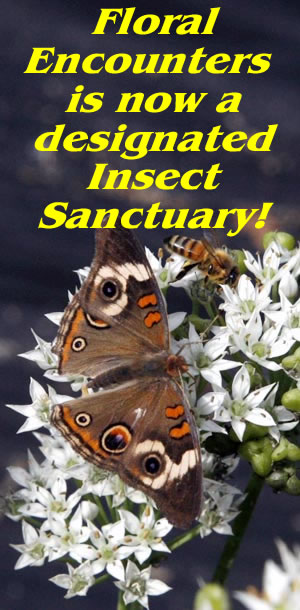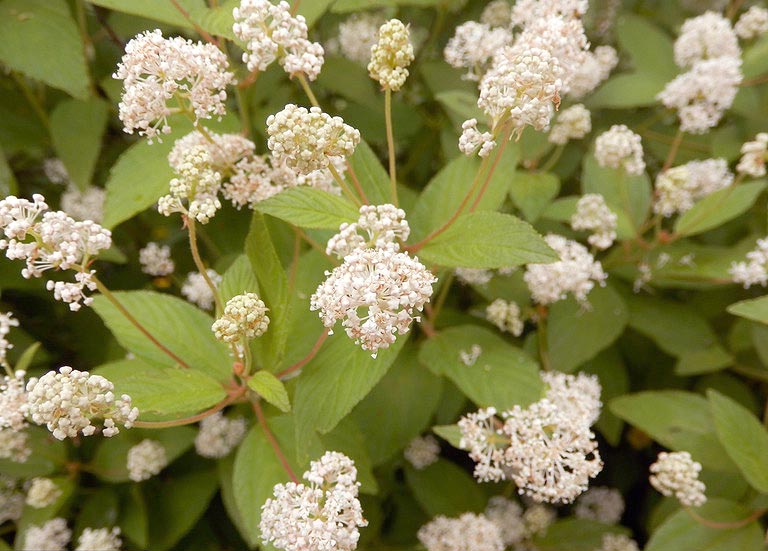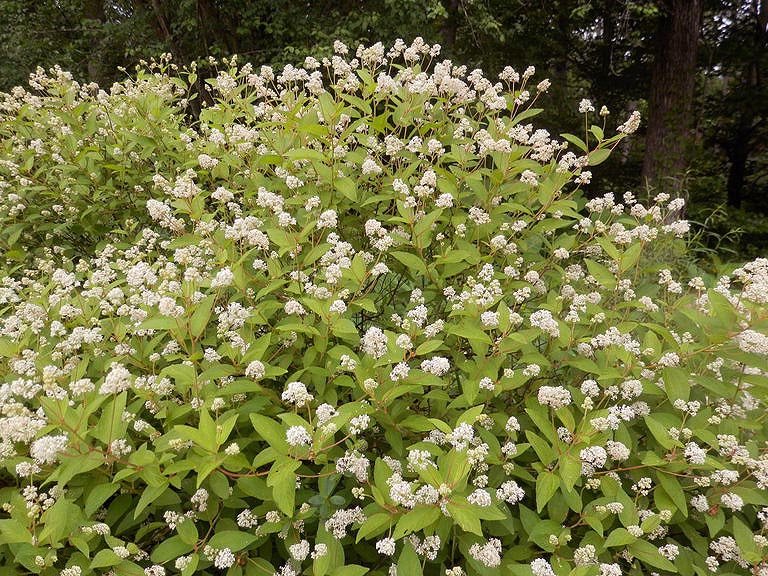An excellent shrubby perennial hardy to zone 4 and very adaptable to most conditions. Given full sun in zones 6b and colder some shade in hotter zones the hardy plant will grow almost anywhere in any soil except wet and waterlogged. It is extremely drought tolerant and very tough. IT produces a long tap root making it hard to move once established but that root will also hold together loose soils so its great for controlling erosion especially on steep banks. The lovely flowers burst forth in profusion in late spring early summer and last about a month producing a delightful lilac like aroma. Butterflies and hummingbirds love the flowers. Grows to about 3 feet in height so makes good semi ground cover for hotter dry areas or unused ground. Needs very little care once established may need a little weeding around until its large enough to beat out the weeds. The only down side to this lovely plant is deer and rabbits think its lovely too so it will need some protection.
The upper portion of the stem develops into panicles of flowers, other flowers arise from the leaf nodes of the upper leaves, these can be from 2-8 inches (5-20 cm) long. The actual panicles are 2-5 inches (5-12.7 cm) long and 2-3 inches (5-7.6cm) wide. They consist of many small branches that in turn support clusters of flowers on long white stalks or pedicels up to 1 inch (2.5cm) long. Each cluster contains about 10-14 individual flowers that sit on the end of each stalk and is no more than 0.25 inches (0.5cm) across. Unopened they look like tiny clenched fists, when opened they show five white petals with long thin bases and broader but curved outer section, the whole resembling a tobacco pipe. The center has a cluster of five shorter stamens with large black tips. Flowers open a few at a time in each group providing a longer blooming time that lasts about a month and produce a delightful lilac-like aroma. The are followed by small dark brown seed capsules which when mature will split and eject the seeds several feet from the parent plant. In this way they can create large colonies. The plants create a large taproot and do not like to be moved once established.
We recommend sowing in small peat pots or individual cell trays for best results.
Once seeds have been removed from moist stratification pot them into small peat pots or cell trays if not already sown. Place pots in a warm sunny location with temperatures around 70 F (21 C). Germination can be erratic which is why we recommend individual pots. If in individual cell trays move seedlings as soon as they are large enough to handle and transplant to peat pots or plastic pots no smaller than 3 inches across.
Seedlings begin to develop their tap roots early which is why we recommend peat pots. If using plastic pots check to see if the roots are visible at the bottom of the pot as soon as they are you must transplant out. Peat pots can be planted directly in the ground when roots begin to show through the pot. With plastic pots take care when removing the pot not to damage the roots. If the roots have become pot bound it will be necessary to tease them out so that they are not circling the pot and ease out the tap root before planting. This can stunt the growth of the plant but leaving roots knotted together can produce girdling roots that can later strangle and kill the plant. Best to plant out early when roots are still developing and avoid this potential issue.
A very adaptable plant that can grow almost anywhere the soil is well drained. It cannot tolerate wet and waterlogged soils. Does well in almost any other soil and can withstand tough conditions. The tap root makes it very drought tolerant and it can survive fires and will regrow from the tap roots. This makes it a good plant for fire hazard areas.
Its good on rocky soils and sandy soils. Once established it takes little or no care even in periods of drought. Makes an ideal ground cover since it does not grow too tall. Ideal for dry scrub areas, banks and cuttings where the deep roots can help stabilize the soil and prevent erosion. It can produce suckers and form large colonies if conditions are ideal for it.
On the downside. Deer and rabbits like it too. Deer with denude bushes and rabbits eat the young stems as they grow. So it needs protection. Many species will eat the seeds, many birds including turkeys, squirrels and small rodents.
A decoction of the bark is used as a skin wash for cancer and venereal sores
Dyes. Several different ones are produced from this plant. The flowers make a light green dye, the rest of the above ground plant makes on that is cinnamon red which the roots produce a strong red dye.







